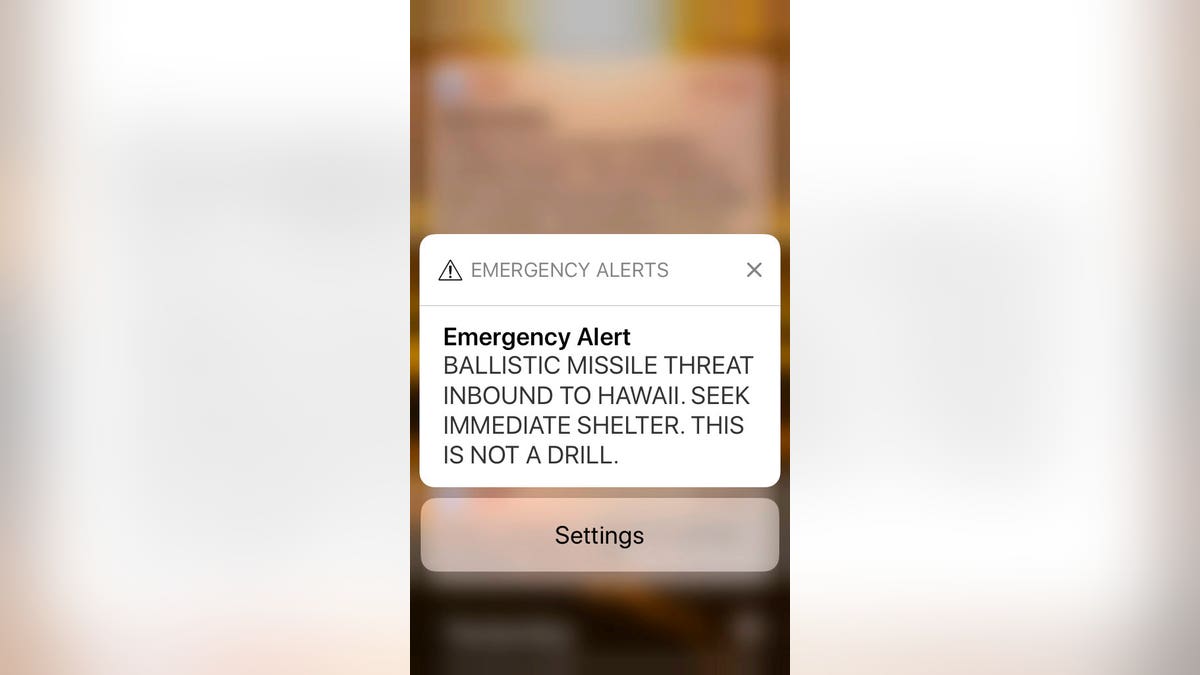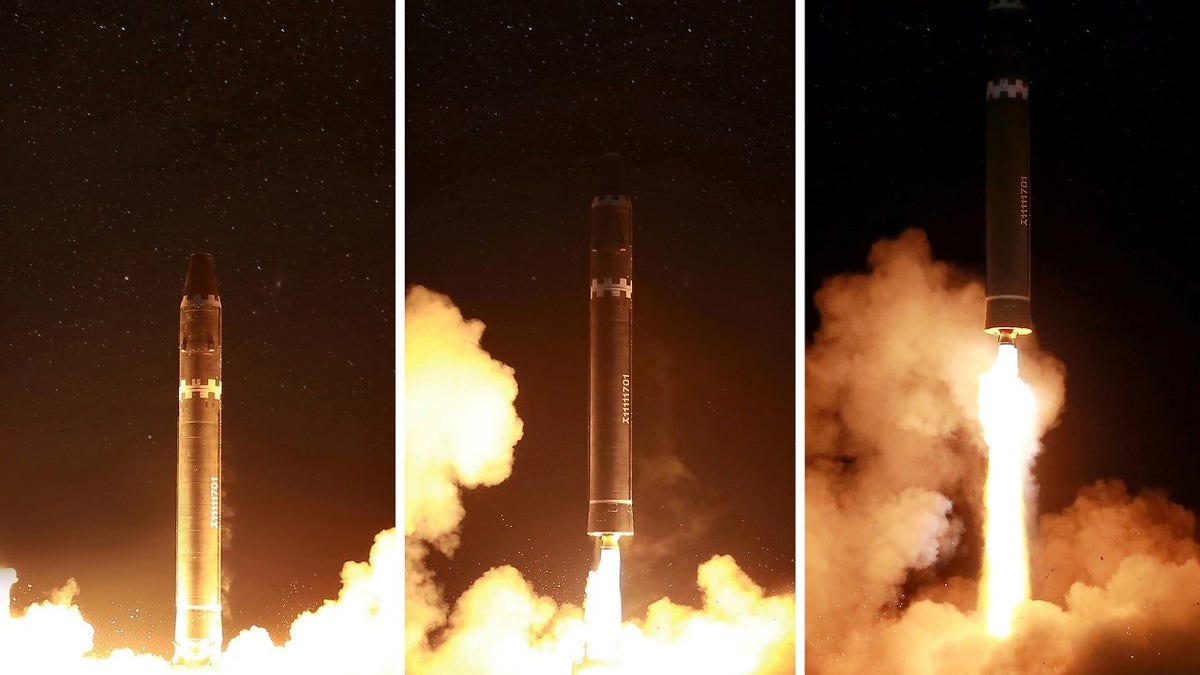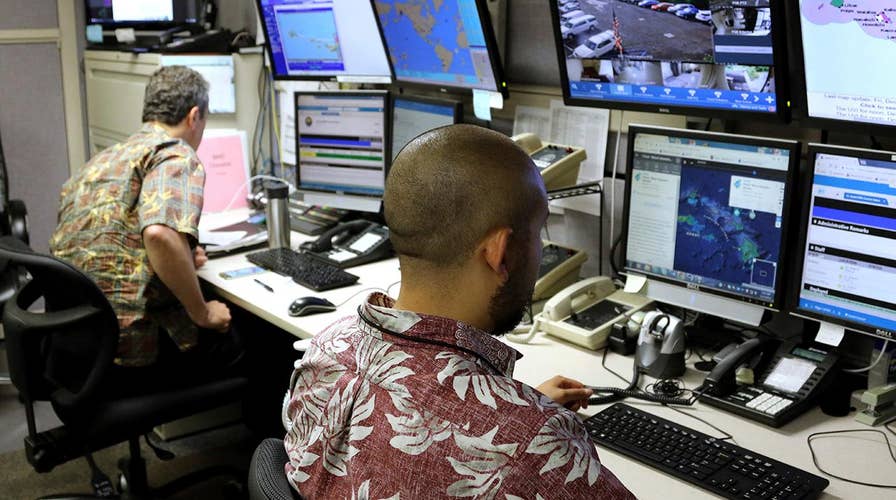Hawaii left reeling after missile threat false alarm
'The Greg Gutfeld Show' panel shares their reaction.
North Korea mocked the United States on Tuesday for a recent mistaken alert that sent Hawaii residents into a panic, with the Hermit Kingdom boasting the regime's intercontinental ballistic missiles have left Americans "trembling with fear."
In one of its typically bombastic statements, the state-run Korean Central News Agency scoffed at the U.S. for the Jan. 13 alert Hawaii’s Emergency Management Agency accidentally sent out to residents stating a ballistic missile was heading to the island.

The alert sent on Jan. 13 caused mass panic among Hawaii citizens.
"The U.S.…is now on jitters, being seized by 'fear of the north's missiles.' A ballistic missile threat warning was released throughout Hawaii, U.S. by a mistake recently,” Tuesday's statement said. "It is none other than the U.S. which is trembling with fear, stricken by extreme horror and pressure even by a single message and by a flash in the sky."
JAPAN BROADCASTER ALERTS NORTH KOREA MISSILE LAUNCH THAT DIDN'T HAPPEN
North Korea warned about a “higher level of disaster” that would be inflicted on Americans if U.S. officials engaged in further confrontation with Kim Jong Un’s regime.
"The mindset of the panic-stricken Americans is that the higher the level of confrontation with the DPRK, the world-level nuclear power and a rocket power, the higher the level of disaster to be inflicted upon them," the statement said.
People in Hawaii received an alert at 8:07 a.m. on Jan. 13 that read: “BALLISTIC MISSILE THREAT INBOUND TO HAWAII. SEEK IMMEDIATE SHELTER. THIS IS NOT A DRILL.”

North Korea's November missile launch was "significantly more" powerful than its last ICBM. (KCNA via Reuters)
Officials tweeted nearly 20 minutes later that the message was a mistake, but a follow-up alert wasn’t sent for nearly 40 minutes. Hawaii Gov. David Ige vehemently apologized for the false alarm and revealed Monday he and his team took so long to post a message on Twitter because he forgot his username and password.
HAWAII'S FALSE MISSILE THREAT: WORKER 'FEELS TERRIBLE' AFTER PUSHING THE WRONG BUTTON
But within days of the Hawaii mistake, Japanese broadcaster NHK also issued an alert saying “North Korea appears to have fired a missile” — when no launch occurred in the region.
“This happened because equipment to send a news flash onto the Internet had been incorrectly operated. We are deeply sorry,” an NHK announcer said on its news program.
The Associated Press contributed to this report.









































